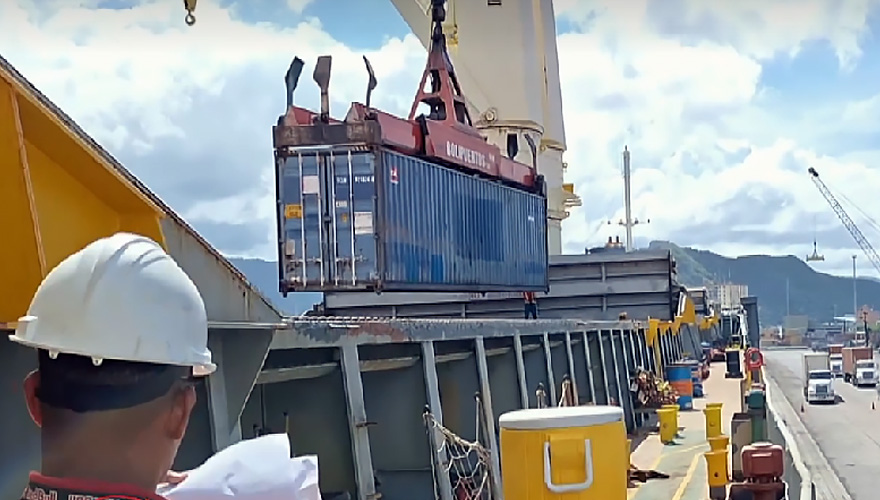 Guantánamo.- The cargo of a third ship carrying aid sent by Venezuela, within the framework of ALBA-TCP, began to be unloaded this Thursday in Santiago de Cuba to assist in the recovery efforts following Hurricane Melissa. The resources include machinery, materials for the construction and repair of homes, bridges, and roads, as well as mattresses and other essential supplies.
Guantánamo.- The cargo of a third ship carrying aid sent by Venezuela, within the framework of ALBA-TCP, began to be unloaded this Thursday in Santiago de Cuba to assist in the recovery efforts following Hurricane Melissa. The resources include machinery, materials for the construction and repair of homes, bridges, and roads, as well as mattresses and other essential supplies.
The ship arrived at the Guillermón Moncada Port in the province of Santiago de Cuba. There, local authorities are coordinating the unloading of supplies, which will be distributed immediately to the areas affected by the storm.
These operations are running continuously for 22 hours a day, including night shifts, to expedite the delivery of aid. This effort is part of the Cuban government’s response to the emergency.
This solidarity aid adds to that of previous weeks, in which Venezuela and the Bolivarian Alliance for the Peoples of Our America – Peoples’ Trade Treaty (ALBA-TCP) sent shipments with approximately 8,000 tons of aid destined for the affected families.
With this initiative, the Governments of Cuba and Venezuela reiterate their commitment to mutual support in addressing common challenges, both climatic and geopolitical, and ensuring the well-being of their people.
Hurricane Melissa struck the eastern region of the Caribbean nation on October 29, causing extensive material damage but no fatalities.
This Thursday, Cuban President Miguel Díaz-Canel Bermúdez met with Domiciano Graterol, Venezuela’s Vice Minister of Public Works, who is leading a group of Venezuelan specialists who arrived in eastern Cuba to assist in the assessment and reconstruction of damaged road infrastructure.
From the “Major General Antonio Maceo Grajales Revolution Square” Monumental Complex, Díaz-Canel expressed that the presence of young people in Cuba, ready to provide technical and construction assistance, “is related to the brotherhood and friendship between two peoples, between two revolutions.”
The First Secretary of the Central Committee of the Communist Party of Cuba reflected that both countries are experiencing a common situation: “a provocative U.S. military presence in the Caribbean, which threatens the Bolivarian Revolution and undermines the security of the region.”
President Díaz-Canel pointed out that this fraternal hand “is an example in the face of the types of relationships that are more common in today’s world and are based on pressure, deception, and coercion.” Photo: Estudios Revolución
Amid these conditions, Venezuela, “with an altruistic gesture,” is sending its citizens to work on the island. Díaz-Canel also highlighted Cuba’s cooperation with Venezuela “amid a situation of intensified blockade.”
Following the meeting, Vice Minister Graterol reported on the progress of the work, which includes a “point-by-point” review of roads, bridges, and more than one hundred thousand homes affected in the five eastern provinces.
The Venezuelan official explained that the work is divided into three phases: the first, an assessment, has already been completed; the second, to connect the most important crossings between towns, has also been completed; and the third, focused on specific bridge construction projects.